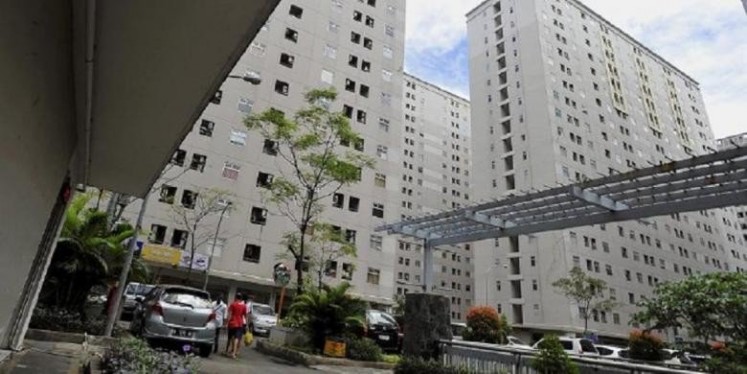Taxmen rely on new bank secrecy rule to boost collection
The introduction of a new rule that eliminates data secrecy in bank accounts is expected to help the tax authority trace potential taxpayers and uncompliant ones, paving the way for the country to boost tax revenue collection as soon as next year
Change Size

T
he introduction of a new rule that eliminates data secrecy in bank accounts is expected to help the tax authority trace potential taxpayers and uncompliant ones, paving the way for the country to boost tax revenue collection as soon as next year.
Indonesia continues to lag behind its neighbors in terms of tax-to-gross domestic product (GDP) ratio, which currently stands at about 11 percent, lower than the majority ASEAN countries where the figure ranges between 14 and 15 percent.
The government expects to increase the portion to up to 12 percent next year, but lawmakers suggest the figure should be boosted to 13 percent as President Joko “Jokowi” Widodo’s administration has previously pledged to reach a 15 percent tax ratio by the end of his term in 2019.
The government and the House of Representatives’ budget committee are currently discussing macroeconomic targets for the proposed 2018 state budget before President Jokowi officially delivers the state budget in a presidential speech on Aug. 17, in conjunction with the celebration of the country’s Independence Day.
The exact tax revenue targets for next year will only be deliberated by lawmakers and government representatives after the presidential speech.
With the recent issuance of Finance Ministerial Regulation (PMK) No. 70/2017, which lays out technical guidance for the tax authority on how to access financial information for tax purposes, the government expects that it will become a powerful tool to implement the Automatic Exchange of Information (AEOI) scheme as a global initiative to fight against tax evasion.
Endorsed by the Organization for Economic Cooperation and Development (OECD) and the G20, of which Indonesia is a member, the AEOI scheme binds its participants to automatically exchange taxpayer information, such as addresses, bank account details and asset purchases in other countries.
As the AEOI implementation will take place in 2018, the Tax Directorate General is convinced that it has adequate capacity in terms of human resources and IT system in analyzing the big data and determining potential tax revenues faster.
“We are able [to do it] as we are already managing a lot of data, although the reform is still ongoing. We will analyze the data through [a specific] application,” said Yon Arsal, the tax revenue and compliance director at the Directorate General of Taxation, after a hearing with members of the House’s budget committee on Wednesday.
Acting as a second-layer regulation required in the AEOI, the newly-introduced ministerial regulation requires banks to report individual accounts with a minimum total balance of Rp 200 million (US$15,000) for domestic tax monitoring and probing purposes.
Mandatory reporting also applies to other financial institutions, such as insurance companies and cooperatives.
At present, Indonesia has 2.2 million bank accounts with a minimum balance of Rp 200 million, according to the Financial Services Authority (OJK), meaning that the tax authority will have a mountain of data to look at and determine not just uncompliant taxpayers, but also potential taxpayers who have long been untapped.
The tax office’s Yon Arsal said his institution was conducting a series of pilot projects on an IT system called the compliance risk management (CRM), which manages taxpayers’ data based on their level of compliance as part of its ongoing reform program.
The CRM system will process all information needed to obtain an accurate profile of a taxpayer and classify him or her based on an estimated non-compliance risk.
“After the data processing, [the tax office] can significantly focus on taxpayers with accurate data and the potential will be bigger,” said Center for Indonesia Taxation Analysis (CITA) executive director Yustinus Prastowo.









